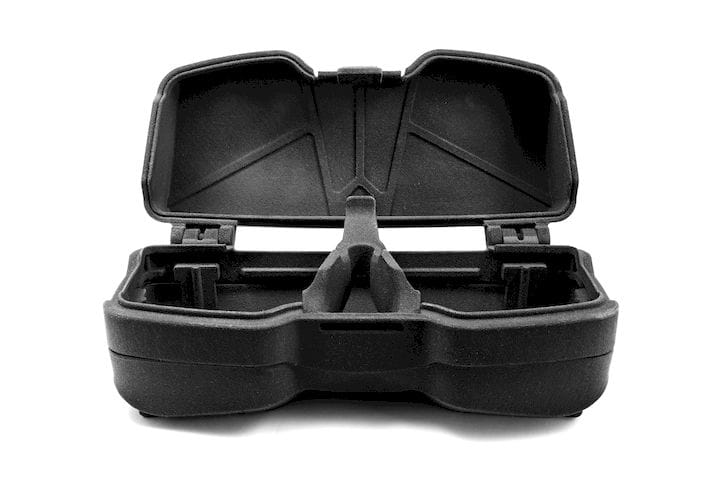![A combat eyewear case 3D printed in a new PA11 material [Source: Sinterit]](https://fabbaloo.com/wp-content/uploads/2020/05/image-asset_img_5eb0a447c8870.jpg)
Sinterit announced a new PA11-based powder material for their SLS equipment.
The company, based in Poland, produces inexpensive desktop SLS-style 3D printers that selectively sinter thermoplastic powders to form complete objects. The advantage of SLS is that highly complex shapes can be easily produced, since fragile elements are automatically supported during printing by surrounding non-fused powder.
The other advantage of SLS 3D printing is that more powerful materials can be used, such as polyamides (nylons). These can be used to produce prototypes of items that are made from the same material as production units, potentially.
Like many other SLS 3D printer manufacturers, Sinterit has offered PA12 nylon material for some time, as it is very popular and relatively easy to 3D print.
More rare, however, is PA11 material. This material, which offers somewhat better engineering properties than PA12, has been sometimes challenging to 3D print due to the requirement for very precise heating control. That’s hard to achieve in larger SLS 3D printer volumes.
But wait, Sinterit’s machine is smaller! And thus easier to control the internal build volume environment. Thus after some experimentation, they are now able to officially launch a PA11 material they call “PA11 Onyx”, which can be used on their Sinterit Lisa 2 Pro machine.
As an example shown at top, the PA11 Onyx was used to 3D print a combat eyewear case for the military. As you would expect, such an object would have to undergo extreme conditions, including not only mechanical stresses, but also exposure to potentially dangerous and damaging chemicals. A highly resistive material like PA11 is ideal for this and similar applications.
Sinterit hopes to increase sales through the introduction of this new material. I believe this to be a good strategy as we constantly hear of users requiring specific materials for their prototypes or production objects. In some cases, they will not buy the equipment unless the desired material is available.
For PA11 users, that’s no longer a barrier with the Sinterit Lisa 2 Pro.
Via Sinterit









